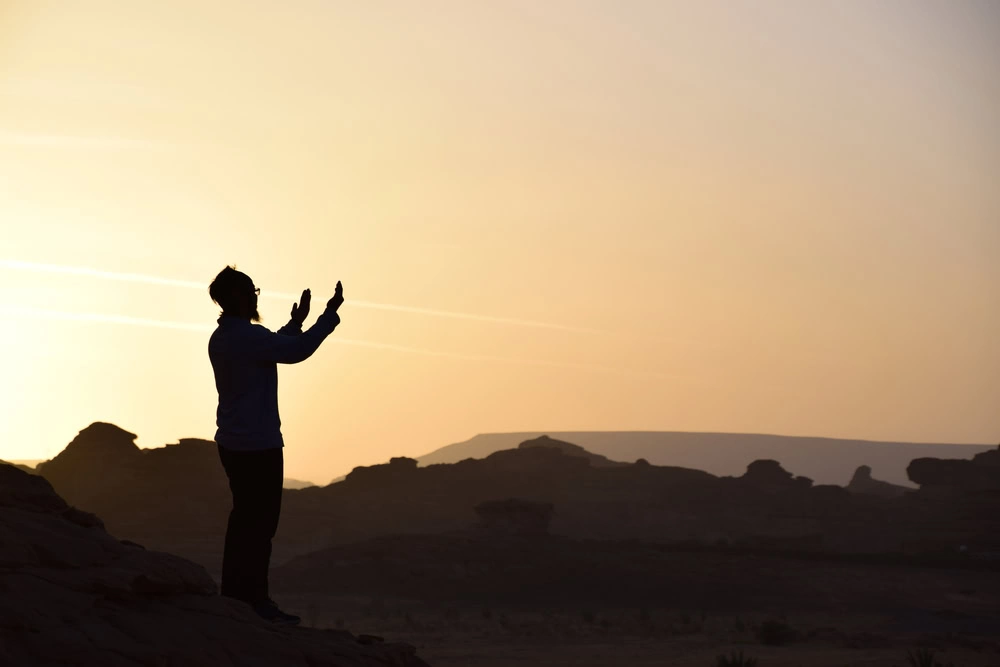Is It Permissible to Travel to Non-Muslim Countries for Tourism?
Shafi'i Fiqh
Answered by Shaykh Dr. Muhammad Abu Bakr Badhib
Question
Is it permissible for me to travel to a European country or other non-Muslim countries solely for tourism?
Answer
In the name of Allah, and all praise is due to Allah. Blessings and peace be upon our master Muhammad, the Messenger of Allah, his Family, his Companions, and those who follow him.
The Encouragement of Travel in Islam
Travel is encouraged in Islamic law when undertaken with the intention of reflection and contemplation. In the Noble Quran, there are several verses that encourage traveling the earth and contemplating the creation of Allah. Allah (Most High) says:
“Say, (O Prophet,) ‘Travel throughout the land and see how He originated the creation, then Allah will bring it into being one more time. Surely Allah is Most Capable of everything.’” [Quran, 29:20]
And He (Most High) says:
“Say, (O Prophet,) ‘Travel throughout the land and see the fate of the wicked.’” [Quran, 27:69]
These and other verses indicate the permissibility of traveling the earth to reflect on the greatness of Allah and His creation. Scholars consider such travel permissible, as it involves a righteous intention and aligns with Islamic law.
This is in contrast to travel that involves sin or leads to sin, which has distinct legal rulings, particularly regarding the permissibility of shortening prayers, which is allowed in the former type of travel but not in the latter, as detailed in the books of Islamic jurisprudence.
Conditions for Permissible Travel
Based on this, traveling to any country with a good intention and righteous purpose is permissible, provided one adheres to Islamic guidelines, such as lowering the gaze, maintaining modesty, covering properly, and performing prayers on time. The concessions of shortening and combining prayers apply when the conditions are met.
Traveling to Non-Muslim Countries
Traveling to non-Muslim countries, however, should only be done when one’s objective cannot be fulfilled elsewhere and the travel is for a legitimate need, such as medical treatment or fleeing for the safety of faith and life.
One’s intention and purpose must be aligned with the principles of Islamic law.
The Debate on Travel for Leisure and Tourism
Many jurists discuss the permissibility of traveling merely for leisure and tourism or sightseeing. However, Shafi‘i scholars differ on whether this type of travel is permissible.
Views Supporting Permissibility
In Kifayat al-Nabih by Ibn al-Rif‘a, travel is categorized into permissible and impermissible. Permissible travel includes travel for trade, leisure, and sightseeing, as noted by Bandaniji and Ruyani. [Ibn Rif‘a, Kifayat al-Nabih]
Al-Rafi‘i noted the difference of opinion regarding permissible travel, excluding leisure travel, which is debated because it is considered a form of excess. He concluded that it is apparently included among permissible types of travel. [Ibid.]
Mawardi summarized that travel for leisure and sightseeing is permissible, but the traveler is not entitled to receive zakat from the “ibn al-sabil” (traveler in need) category, though they are allowed to shorten and combine prayers. He added that if the traveler runs out of funds during the journey, they may be given zakat out of necessity. [Ibid.]
Ibn Qasim al-‘Abadi considered leisure travel to fall under permissible travel. [‘Abadi, Hashiyat Tuhfat al-Muhtaj]
Views Against Permissibility
However, Imam Bajuri, among later scholars, held that travel for leisure and sightseeing does not fall under permissible travel. He stated:
“The fourth category is when the travel is for a valid purpose such as visiting, trade, or pilgrimage, not merely for leisure and sightseeing, as this is not considered a valid purpose for travel. However, if there are two routes, one short and the other long, and one takes the longer route for leisure, this is considered a valid reason to deviate from the shorter path, thus allowing one to shorten prayers.” [Bajuri, Hashiyat Shah Ibn Qasim]
Caution and Recommendations for Travelers
Muslims should exercise caution in their travels, ensuring their intentions align with Islamic principles. To ensure the safety of one’s faith, it is advisable to choose Muslim-majority countries or those with significant Muslim populations. Many such places offer ample opportunities for leisure and tourism, eliminating the need to visit non-Muslim countries.
The Importance of Correct Intention
Before traveling, one should correct one’s intention, aiming to reflect on Allah’s creation, observe the conditions of Muslims, seek relief from life’s pressures, or similar purposes.
Allah is the One who grants success and guidance to the straight path.
[Shaykh] Dr. Muhammad Abu Bakr Badhib
Shaykh Dr. Muhammad Abu Bakr Badhib is a prominent Islamic scholar from Yemen. He was born in Shibam, Hadhramaut, in 1976. He received his degree in Shari‘a from Al-Ahqaf University, a master’s degree from the Islamic University of Beirut, and a PhD in Usul al-Din from Aligarh Muslim University (AMU).
He studied under great scholars such as Shaykh al-Habib Ahmad Mashhur al-Haddad, Shaykh Fadl Ba‘ fadl, Habib Salim al-Shatiri, Habib Ali Mashhur bin Hafeez, and others. He has served as the Director of Publications at Dar al-Fiqh, the former Deputy Director of Cultural Relations at Al-Ahqaf University, a former Assistant for Employee Affairs at Atiyah Iron Company, a researcher at the Sunna Center affiliated with the Dallah al-Baraka Foundation, and a researcher at Al-Furqan Foundation’s Makka al-Mukarrama and Madina al-Munawwara Encyclopedia branch.
Currently, he is a researcher at Al-Furqan Foundation’s Makka al-Mukarrama and Madina al-Munawwara Encyclopedia branch, teaches traditionally through the Ijaza system at Dar al-Fuqaha in Turkey, supervises the Arabic department at Nur al-Huda International Institute (SeekersGuidance), and is a member of the Board of Trustees of the Manuscript House in Istanbul.
His works include “The Efforts of Hadhramaut Jurists in Serving the Shafi‘i School,” “Contributions of Hadhramaut Scholars in Spreading Islam and its Sciences in India,” “Hada’iq al-Na‘im in Shafi‘i Fiqh,” in addition to verifying several books in Fiqh, history, the art of biographies, and Asanid (chains of narration).
